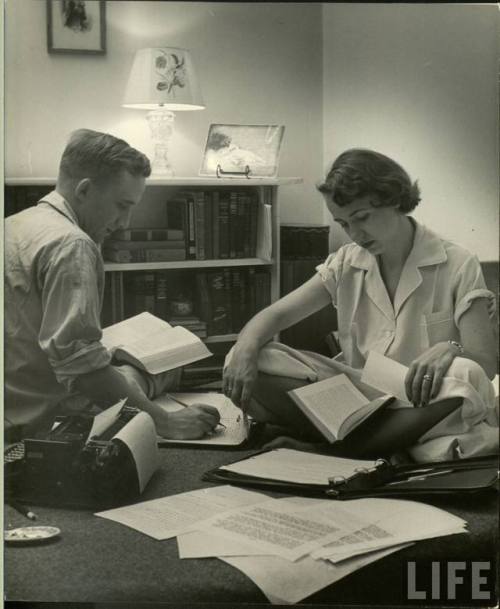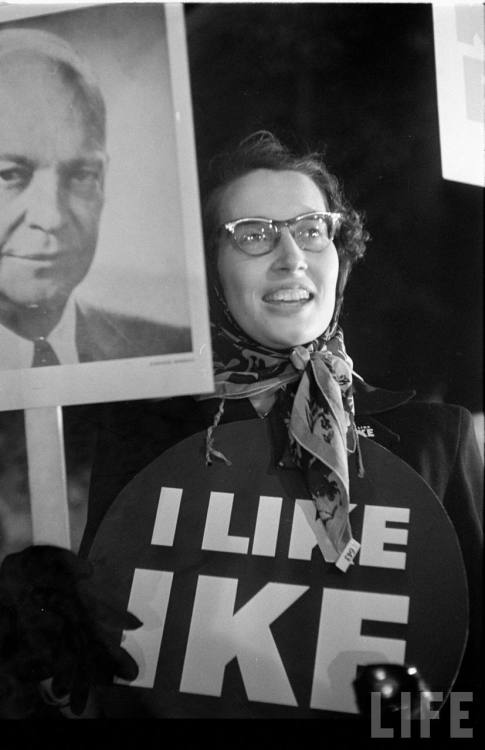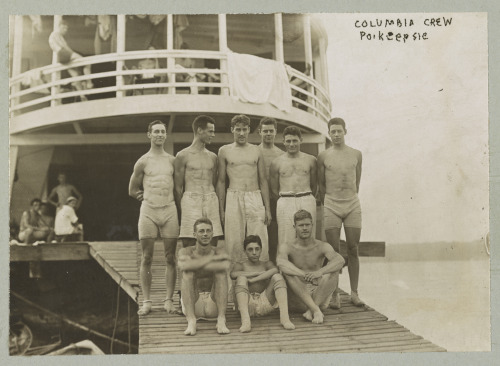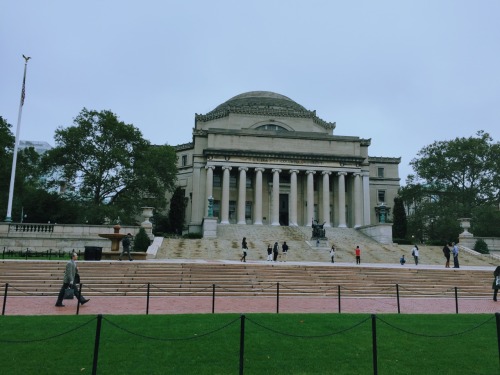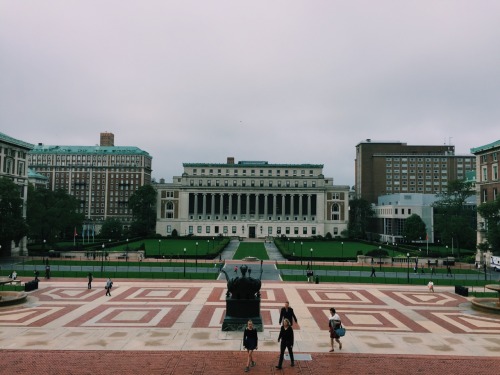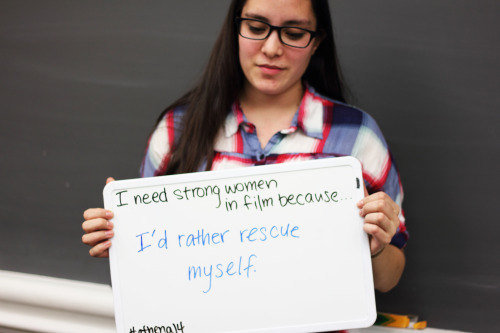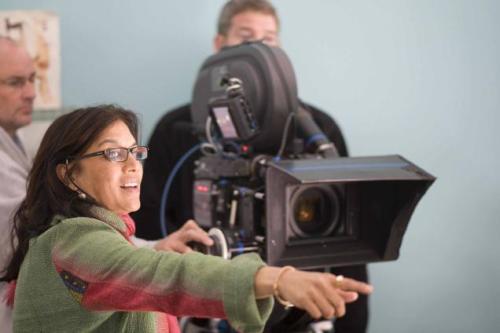#columbia university
Implantable microrobots: Innovative manufacturing platform makes intricate biocompatible micromachines
A team of researchers led by Biomedical Engineering Professor Sam Sia at Columbia Engineering has developed a way to manufacture microscale-sized machines from biomaterials that can safely be implanted in the body. Working with hydrogels, which are biocompatible materials that engineers have been studying for decades, Sia has invented a new technique that stacks the soft material in layers to make devices that have three-dimensional, freely moving parts. The study, published online January 4, 2017, in Science Robotics, demonstrates a fast manufacturing method Sia calls “implantable microelectromechanical systems” (iMEMS).
By exploiting the unique mechanical properties of hydrogels, the researchers developed a “locking mechanism” for precise actuation and movement of freely moving parts, which can provide functions such as valves, manifolds, rotors, pumps, and drug delivery. They were able to tune the biomaterials within a wide range of mechanical and diffusive properties and to control them after implantation without a sustained power supply such as a toxic battery. They then tested the “payload” delivery in a bone cancer model and found that the triggering of release of doxorubicin from the device over 10 days showed high treatment efficacy and low toxicity, at 1/10 of the standard systemic chemotherapy dose.
Post link

Aunty Disco Project (ADP) announced their break up shortly after lead singer Omar Akhtar decided to move to New York to study journalism at Columbia University.
ADP is the stuff of Karachi legend: 90s alternative hooks, complicated rhythmic shifts, borrowings from genres as vast as samba, disco and garage, stellar musicianship and genuine tragedy. Established in 2006, the band reached critical mass when “Sultanat”, a raucous, anti-government rock anthem, replete with eastern rifts and psychedelic delivery, showcased on “Coke Studio” in 2010. Sped up at Saturday’s Pakistan American Cultural Center show, the song manhandled the crowd, nearly spilling the percussion kit onto the tweensters in the front row. Because at the final ADP show, it was really about the kids.
Take the Pathan sisters, Amna, 14, and Laila, 15 – ADP’s self-proclaimed biggest fans. “They’re the first band I ever saw in concert,” said Laila. “The line-up has changed. The old stuff was kind of grungy and interesting, and the new stuff is upbeat and happier. And the really cool thing, you can see how Omar has matured in the lyrics he writes now.”
She’s followed ADP since she was 10, catching every show that didn’t break curfew. Last week, she had three nightmares that she’d missed the final show.
Columbia Crew, Poughkeepsie, New York, 1910
Photograph by Bain News Service (New York)
Gelatin silver print
Library of Congress, Prints and Photographs Division, Washington, D.C.Photograph shows members of the Columbia University varsity eight-oared crew team: top row, left to right, R. K. Murphy, F. Miller, Paul Renshaw, A. M. Hamman, W. Steinschneider, G. Downing; bottom row, S. Pitt, A. Brock, and F. H. Saunders, at Poughkeepsie, New York, for an intercollegiate regatta.
Post link
finally edited my spain vlog!!! travelled with some friends over spring break and it was the bestest of times <3
wanted to share just as college results are coming out soon ~
also because i miss that time of the year :’)
11.21-12.21
hello so i filmed this back in september but school is hard and i finally have time to edit this now that it’s winter break. long overdue. fall semester was a chaotic but great time. xx
Learn More About Karine Jean-Pierre, Political Strategist, Activist and New White House Press Secretary (LISTEN)
Learn More About Karine Jean-Pierre, Political Strategist, Activist and New White House Press Secretary (LISTEN)
by Lori Lakin Hutcherson (@lakinhutcherson)
A few days ago, Karine Jean-Pierre made history when she was announced as the next White House Press Secretary, taking over from current Press Secretary Jen Psaki on May 13. Jean-Pierre will be the first Black woman and openly LGBTQ+ person to hold the high-profile position.
To read about her, read on. To hear about her, press…


April 18, 1923
At South Field on Columbia’s campus in New York City, a collegiate pitcher strikes out seventeen batters from Williams to establish a school record but loses the game 5-1 due to wildness. Lou Gehrig, the young southpaw, will become better known for his hitting prowess with the Yankees.
NOW KISS!
Edmund Goulding, MGM director, helping William Twiddy and “Bill” Easton kiss while making a film with the motion picture class at Columbia University.
1927.
Post link
or,François Villon, Merci Beaucoup

Paul Violi has died.
The internet has known this for more than ten days, but I only learned he had died two nights ago, from a friend who knew him too, and she I think found out on her way from Russia to New York, because there was a New York Times obituary, a late one, and she told it to me, she told me Paul Violi has died, I learned this from her, and I can thank him for my friendship with her, and I have thanked him, and I learned from her that Paul Violi had died alongside a piece of news about her father that she told me, her father who died a year ago and whom I loved very much, her father has a starring or a semi-starring role in a French film that is playing in New York, and although her father was not an actor he was exceedingly charismatic, and because I am fatherless her father was for a brief period fatherlike for me, as was Paul Violi, for certain limited times and in ways that on the one hand need not be made anything of and in other ways helped me not go crazy and this I suppose is no small thing, and in any case, this film in which the late and widely beloved father of my friend has a starring or supporting role, this film is called I am not dead.
There was a lightning storm going on while these things were being told to me. I felt a restful and strange feeling to be letting the lightning storm be itself or do itself while I sat with my back to it and tried to know what had happened.
This disturbance in time of learning a thing that is already known, but recent, and of there existing so many ways a thing demands that it be said, be written by one.
By one, or rather, by me.
Paul Violi was my teacher. He was extremely good to me during a time that as I recall I said more than once in those days and also in later days I said it, that I would have or should have lost my mind at that time if it weren’t for him.
It’s weird to say this because this week I have been thinking about the mystery of teaching and of teaching by irritating, as some do it, and of teaching by declaring, as others do it, or by seduction, in any case teachers and why people have them, I’ve been thinking about it lately, viz the quotation from Patthabi Jois below, it may not make immediate sense to you, but I have been thinking about the transmission of truth and how the world is shaped in the mouth and in the body and why, why do people call a man Guruji, why and how an aspirant seeks out an elder and for what reasons and how between the aspirant and the elder something delicate that in one way cannot be made too much of and in another way is so ineffable that it can be strenuous to describe– well, how to say or to think a thing about all this.
PV had a rugged and unpretentious erudition, but I mean real erudition, that made him an extraordinary teacher, because he knew when and when not to use this erudition, he knew when to take out the scalpel and make use of it, and he knew also when and when not to use the ruggedness, how not to overdo the streetsmarts, how not to overdue the shall we call it the Hemingwayesque. Young people and many older people are showy about what they know and about what they can do and it can get tawdry. A showiness in a teacher often makes the teacher turn his students into copyists of him, which is in my opinion an exceedingly bad thing. There are moreover several gifted male poets in the United States whose discomfort with the position of the poet has caused them to overdue the whole Louis-Fernand Celine dirty-old-man schtick, to the point of self-parody so pathetic it really is surprising (to me) that these writers are accorded such a wide berth. But anyway.
One should desire to be like the teacher, perhaps, while not wanting to wish oneself or imagine oneself in any way like him or her. One is completely self-educated, self-taught, and seeks out an elder for felicity’s sake. One does not merely eat the mealy mash spoonfed to one. One undertakes to be an inventor. One acquires knowledge by private means.
PV seemed to exert a gigantic, I mean overpoweringly gigantic attraction on the young men of letters, the young male poets, who all adored him with utter openness, they called him Commodore and plied him constantly with flattering questions about the good old days in the New York School of Poetry, generation two.
I suppose I had a quieter way of appreciating him, not that I didn’t want to be part of the flock that called him Commodore, not that I didn’t want to be a slim and impetuous young man in the fifties, flush with poems and a GI bill degree from Harvard, not that I wasn’t one of them in some weird spooky way.
When my mom was first homeless with my little brother, and they were living in my dorm room, and we lived on the goya beans and rice I’d buy for us with the money I made having disgusting photographs taken of me and working in the Erica Jong Writing Center, what I wanted to be more than anything, and this is possibly more insane than anything else, what I wanted to be more than anything was a young man who was a poet, a young male poet like Keats, a young male poet who would enjoy the comradeship of other brilliant young male poets, I wanted to be like Keats and Shelley and Byron and that other one, Coleridge or whatever, or Wordsworth writing to his sister, that would be ok, or like Etienne La Boetie, a sort of fey halfie, gayish but not too gay, Kerouac and his buddies, something like that, I wanted to be something like that instead of an awkward and rather gothy, broke, wan, half-starved hardass with a homeless mother and a brother half-dead with depression and me too half-dead, but half alive enough to fake it.
PV managed not to poison the young people who gathered around him. I encountered several writers near him for whom I developed abiding respect. One of them was named Per Malloch. He killed himself. Now I cannot recall whether his death came during the class that we were in together or whether it came later. But I remember talking to Paul about it and both of us feeling bad enough about it we knew how to let an odd grief and dismay sort of yawn in front of us and really not say too much about it, but just know it was there and see it there and see how quiet it was.
If he liked what you wrote he said ‘Nice going’. He had a way of saying 'Nice going’ or 'Nice goin’ in a rather quiet voice, gently, that managed never either to cage you in overweening praise nor to inhibit you with some kind of sense of finiteness that might otherwise stop you up.
Nice going is not a bad idea.
If he liked what you wrote consistently he had you photocopy it yourself every week. If you wrote something embarrassing that suggested a dangerous tendency he found a surgical way to turn you away from it. I recall having written a particularly bad poem that included taking a shit under a tree, which he said was one of those “poetic-type experiences” from real life that mysteriously makes for a bad poem, and this is a wonderful memory, for some reason, and I cherish this memory.
There was also a particularly awful thing I wrote in couplets called “the backhoe of solitude” which was basically a satirical combination of loneliness angst and a litany, a stack of absurd metaphorical constructions along the lines of that Andre Breton poem that goes like “My woman with the forestfire hair” that was so ugly it still makes me wince, and how great PV was to try something really bad out on.
Violi smoked Tarrytons rather religiously and was hale and outdoorsmanlike, which as I have said the young men of letters found seductive or whatever they felt or found about all this it de facto seduced them because they crowded around him in a flurry, they’d bring him cartons of cigarettes on their way back from Junior Year Abroad, they’d head over to the West End with him for beers after class, me too sometimes. Sometimes he’d have some of us over and we’d eat and go out on his boat. I remember being particularly white and pasty in his wife Ann’s bathing suit on a blanched and chilly day.
I used to get a migraine after his class and swear to myself that by the next week I would have finally resolved either a. to kill myself or b. never to write again, but the other thing that happened every week was that pretty much religiously, before class, I’d be in his office and we’d be talking about shit like how lame it is to get an MFA in poetry (don’t get me wrong, PV said, many of my friends teach in these programs, and I have taught in these programs, but you don’t have to go to one, you are right not to want to) and shit like Francois Villon and, like, life and shit.
After I took his class once, Paul said take it again. This was a thing. It was like, a strange thing, to do this repeatedly, but there was something strangely sustaining about it. He kept on inviting me back. Take it again, take it again. Once, racked with guilt about taking up any space at all in the world, racked with guilt about existing at all on the face of the earth, I said, I think I’d better not take this class again, I think I’d better let somebody else have my spot because somebody else deserves to have it. Are you saying you don’t want to take the class again or you feel too guilty to take the class again, said Paul. I feel too guilty I said. Then trying to lighten the mood a little. You think I should take it again, huh, I said. I think it’s good for the other students if you’re in the class, said Paul, and I think you should take the class again, said Paul, and here I’m thinking, it’s good for them to have this miserable fuckup and socially suicidal loser reminding them to like stay humble, I am supposed to be that for them, I have to be the psycho, ok fine, but what I want to be is everyone else, is what I was thinking, can’t I just be them instead of being with them. Is what I was thinking. At the time.
There are other things I want to remember now.
Like, one of the very best poets alive is Jeni Olin, aka Truck Darling, who I met one night drinking beers with Violi and the poetry dudes who hung around with him.
Like how these poetry dudes I felt hated and loathed me and I hated and loathed them because I wanted to just like be a guy, a talented young man, I thought, this would be so nice, to just be a talented young man and do the things talented young men do. Or just a pretty young girl with money and a few imaginative quirks, I thought, that would be a close second to being a gifted young man of letters.
We corresponded one summer, PV and I, he sent me poems he was working on and typewritten letters, and I did the same. I was living with the booksellers who had taken it upon themselves to save my life at an earlier period in my troubled adolescence. I am making myself sound like a pathetic and passive waif, perhaps, a person whose life repeatedly has been saved by people, and how can I put this, it’s not that I am so passive exactly, but that where the question of living or dying is concerned, on that particular faultline, I don’t really care one way or the other. It’s other things about living that make me wince and certain people have seen more in me at one time or another than I have seen and have taught me how to live and Paul Violi was one who taught me quite a bit, without ever being a jerk about it and actually in an odd way without ever really telling me anything, but just sort of being there and keeping me enough at the edge of the aureole of encouragement that’s supposed to surround a teacher that I didn’t like go off the deep end which, who knows, I am guessing it must have showed somehow, that I saw the deep end, that I had it well in my sights, and that i was fucking half going off it, I was really about to fuck well go off it.
The night Harry Matthews read in New York this fall, I ran into Paul and this restaurant/bar thingy where I think students of the New School like to hang around, it has a New York Schooly literary vibe to it and a kind of old-fashioned sexism that’s you know charming. I was so happy to see him and I am so glad to have seen him again after years. I was pretty drunk and I do think I was lucky enough to thank him face-to-face for having been so great. I haven’t even written a lick, not a word here about what reading his poems, especially at a crucial time, meant to me. Maybe that’s to save for later. He’s a person who I’d remember without trying or needing to from time to time with a feeling of surprise and gratitude, like that he did much more for me than I realized and that he didn’t make a big deal about it, and there is something about what a teacher ought to do that’s this to me, and I really am kind of overwhelmed at the nice feeling I have, not sorrow, because I don’t really believe he isn’t alive and I don’t want to think about that part, I want to think about how he made it possible for many people to find the idea of being poets not totally disgusting, and just me myself and how disgusting I thought it all was, he made it possible for something that was taking root not to get all groady, and I bet it will turn out that many of us who knew him feel this way.
The feeling I’ve left a lot out, that it’s come out all wrong, the feeling I should have made this all about a conversation we once had about author photos and haiting being photographed, he hated to be photographed he said and me I totally hate it, and how often when I know somebody well the photographs of them are hard to look at but the ones of PV capture in this oddly canny way the way his smile was both kind and a bit like he was holding back a larger hilarity you got the feeling he felt it would be rather tactless to display, a kind of absurd grin that’s held at bay by the lighter more sociable smile, and the eyes that know how weird it all is and let you know they know with the unspoken candor that’s called tact, but I can’t write this any better right now, the sun is shining now and I have to go.
The Heroes We Deserve | Rachel Chung (SEAS ‘15)
“I need strong women in film because I’d rather rescue myself.”
Post link
“Every film is a political act; it’s how you see the world.”
PEOPLE OF INFLUENCE | Mira Nair
Director, Producer, Writer
Her debut feature film, Salaam Bombay! (1988), was nominated for Best Foreign Language Film at the 1989 Oscars and won the Camera D’Or and the Prix du Publique at Cannes
Is the first woman to receive the Golden Lion award at the Venice Film Festival for Monsoon Wedding (2001)
Monsoon Wedding was shot in 30 days
Established a filmmaker’s lab, Maisha, to support filmmakers of East Africa and South Asia
Has a degree in sociology from Harvard University and is currently a professor of film at Columbia University’s School of the Arts
Her highly anticipated film, The Reluctant Fundamentalist (2012), was the opening film for the 69th Venice International Film Festival
Post link
the columbia application asked for what pronouns i use!!!! that makes me so happy!!!!!
A group of students entered the offices of Columbia University President Bollinger monday morning to deliver a letter demanding an end to the university’s $8 million dollar investment in Corrections Corporation of America (CCA), GEO Group, and a number of other corporations involved in the private prison industry.
The student activists, according to their press release, launched Columbia Prison Divest:
Wishing to hold their university accountable to its commitment against discrimination, and visited the President’s office hoping to discuss how these kinds of investments were affecting their own communities, which are communities of color, LGBTQ, international and working class communities, disproportionately represented in prisons.
The student-led campaign has advanced three core demands:
- Columbia divest all shares from private prison giant CCA, the British multinational security services company G4S, and the second largest private prison company in the US, the GEO Group;
- Columbia’s fund managers reach out to 36 specific companies in which the university is invested –which collectively over two thirds of CCA and the GEO Group – insisting that they too divest from these private prison giants;
- Columbia provide fully disclose its investments – information on only 10 percent of which students can access – to the university community.
They’ve requested that President Bollinger respond by this Friday, Feb 7.
Contact Columbia Prison Divest: [email protected]


